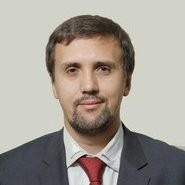The Fifa world cup 2018 was a phenomenon for Russia that was watched by almost half of the world’s population. It involved 32 national teams, playing at 12 venues in 11 cities, with a total of 64 games.
Technology and security played a crucial role for broadcasters, organisers and visitors who set the record by interacting with Fifa digital services. In total there have been 7.5 billion interactions with official Fifa digital platforms.
Russian telecom operators invested around 1.3 billion rubles (app. 20 mln USD) into Moscow ICT infrastructure at the stadiums, training bases, transport stations, airports, fan zones, hotels, media centres and management headquarters.
As a result the Fifa world cup 2018 visitors have transferred 144 Pbytes of data over mobile network which are equal to 72 trillion photos on Facebook, 11 thousand films in 4K format or 3 thousand copies of the digitised fund of the largest library in Moscow.
Moscow has become a test bed for cutting edge technologies at the four Fifa venues: Luzhniki stadium, Spartak stadium, Fifa Fan Fest Sparrow Hills, Fifa Fan Fest Spartak stadium. In total 1300 cell towers, 55 mobile cell sites and 25 000 km of fiber line were deployed to achieve such a reliable result. In cooperation with mobile operators Moscow Government provided solid mobile network infrastructure:
- Luzhniki stadium – simultaneous connection for 150k users, average in/out speed 20-100/10-30 Mbit/s, maximum speed 260 Mbit/s
- Spartak stadium – simultaneous connection for 60k users, average in/out speed 20-100/10-30 Mbit/s, maximum speed 260 Mbit/s
- Fifa Fan Fest Sparrow Hills – simultaneous connection for 120k users
- Fifa Fan Fest Spartak stadium – simultaneous connection for 50k users
With a speed reaching 260 Mbit/s, HD video with full game could be downloaded in 4 minutes. The peak load was reached during Russia-Croatia game which exceeded the traditional New Year peaking load by more than 1.5 times. Interestingly, 50% of European Fifa guests and 85% Latin Americans bought prepaid SIM Moscow mobile operator’s cards and massively used them.
Moscow will also begin permanently testing the 5G pilot zone in early 2019. The pilot zone will be launched by Moscow Government in cooperation with Russian operator Megafon. The operator plans to conduct commercial launch of 5G networks until 2022. There are 4 key industries to be tested with 5G networks: healthcare, transport, construction and housing utilities.

One of the projects to pilot is ultrasound diagnostics to be remotely operated via 5G networks. Another project is launching drones for monitoring construction sites through a high-speed network.
With regards to Wi-Fi, ahead of Fifa Moscow authorities have spent 830 million rubles (app. 13.3 mln USD) on free public Wi-Fi hotspots in a further effort to secure the access to the internet for everyone. In total there was 2,000 new Wi-Fi hotspots added to its existing infrastructure of over 30,000 hotspots.
The Wi-Fi network was also installed at the Fifa venues in Moscow with the average speed 7 Mb/s. It is 3.5 times higher speed than Fifa requires:
- Luzhniki stadium – 420 wireless access points, simultaneous connection for 84k visitors
- Spartak stadium – 200 wireless access points, simultaneous connection for 45k visitors
- Fifa Fan Fest located at Sparrow Hills – 100 wireless access points, simultaneous connection for 25k visitors
Andrey Belozerov, strategy and innovations advisor to CIO of Moscow noted: “In cooperation with mobile operators we have developed sophisticated digital ecosystem providing solid mobile network and extensive Wi-Fi coverage for our visitors.”
“At first we have expected 30-35k visitors at Fifa Fan Fest Sparrow Hills, but during the first day 70k visitors arrived and it exceeded our expectations. We had to scale up our networks to withstand a peaking load. We believe that we have managed to provide an infrastructure for everyone to share this moment with their friends abroad”.
As a result, 70k people enjoyed Wi-Fi coverage and transferred a total of 9.5 TB of data. The top services accessed through Wi-Fi are: Instagram, WhatsApp, VK, YouTube, Facebook. The statistics outlines which countries are represented by users connected to Wi-Fi at the Fifa Fan Fest:
- Russia – 71.3%
- Canada/USA – 3.2%
- United Kingdom – 2.8%
- Germany – 2.3%
- France – 1.8%
Moscow authorities have also deployed sophisticated CCTV system in order to enhance security for every visitor.
CCTV system connected 4288 cameras situated at Fifa facilities including 9 metro stations in the neighborhood. For instance, Luzhniki stadium and its adjacent areas accommodated 3150 cameras in total, while 521 cameras were installed at Spartak and its surroundings. With regards to Fifa Fan Fest Sparrow Hills – 393 cameras were installed. The video data from CCTV cameras could be stored for 40 days.
Moscow authorities also piloted three video analytics zones with face recognition systems. All in all, 321 cameras with face recognition were installed at Fifa facilities: 321 at Luzhniki, 58 at Fifa Fan Fest Sparrow Hills and 39 at Spartak stadium.
Face recognition system identified football hooligans and prevented them from entering Fifa facilities. In total, 98 visitors were banned to enter Fifa facilities as their photo was matched with the database provided by city authorities. As a result CCTV system allowed organisers to profoundly enhance security.
Comment on this article below or via Twitter: @VanillaPlus OR @jcvplus






